Imagine if Woodrow Wilson's Fourteen Points had been fully implemented after World War I. This alternate timeline would have dramatically reshaped the course of history.
How might the world be different today if Wilson's vision had become reality? Let's explore the fascinating possibilities and potential consequences of this hypothetical scenario.
In this alternate timeline, Wilson's Fourteen Points would have fundamentally altered the global landscape after WWI. Self-determination would have redefined nations and former colonies, while the League of Nations would have gained significant authority to resolve international disputes and maintain peace.
The rise of totalitarian regimes might have been prevented, paving the way for increased economic growth and cooperation among nations. However, this new world order could have also brought about unforeseen challenges and consequences that would have shaped the 20th century and beyond in ways we can only speculate.
Self-Determination Realized
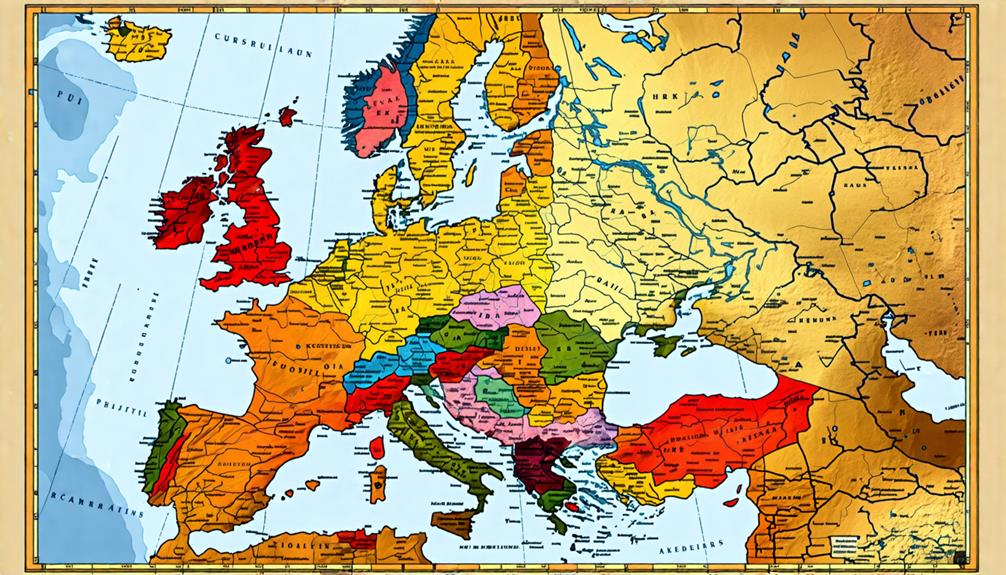
Had Wilson's advocacy for self-determination in the Fourteen Points fully succeeded, it's theorized that many new nation-states would have emerged earlier from the remnants of crumbling empires. Countries like Poland, Czechoslovakia, and Yugoslavia might've gained independence sooner, no longer under Austro-Hungarian or Ottoman rule.
Some believe this could have significantly altered the geopolitical landscape and power dynamics in Europe and beyond. However, others argue that such rapid change might've led to increased instability and conflict as these fledgling nations found their footing.
Aspects of Wilson's vision did come to pass later, as various peoples gained autonomy through a gradual process of decolonization in the 20th century. Leaders like Gandhi and Nkrumah championed self-determination as they sought independence for their nations from European colonial powers.
Economic Consequences
If the Fourteen Points had been fully implemented, it could have led to a more interconnected world with increased trade and economic cooperation between nations. One theory is that this would have spurred economic growth and raised living standards in many countries.
However, it might've also led to increased competition and disruption of local industries, forcing nations to adapt and innovate to remain competitive in the global market.
While the Fourteen Points weren't fully realized in the aftermath of World War I, some of their principles were later incorporated into international organizations and agreements. For example, the League of Nations, established in 1920, aimed to promote international cooperation and prevent future wars, although it ultimately failed to do so.
The United Nations, founded in 1945 after World War II, built upon some of the ideas expressed in the Fourteen Points, such as the promotion of international cooperation and the peaceful resolution of disputes.
League of Nations Empowered
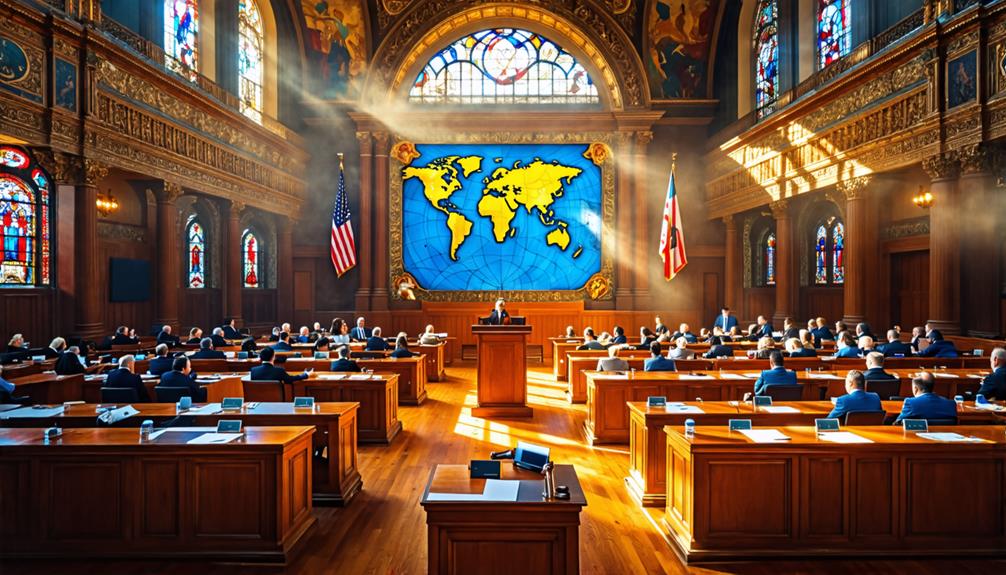
Had the League of Nations been empowered to fulfill its intended purpose, it's possible that the 20th century would have unfolded differently.
One theory is that a more effective international body could have mediated disputes and prevented conflicts through collective security provisions and disarmament efforts.
It's worth noting that while the League of Nations itself didn't succeed, some of its core ideas were later incorporated into the United Nations, which was established after World War II.
The UN has played a significant role in international relations and peacekeeping efforts since its formation.
Colonial Reforms
If Wilson's provisions for colonial reform in his Fourteen Points had been implemented, it could have led to significant changes in how European powers administered their colonies. One theory is that it would have meant a shift from direct colonial rule to more self-determination for the local populations. Resources might've been shared more equitably between the colonial powers and the colonized peoples, rather than being exploited primarily for the benefit of the colonizers.
The arbitrary borders drawn by colonial powers, often disregarding ethnic and tribal boundaries, could have been redrawn to better respect the wishes and identities of the indigenous populations.
It's worth noting that while Wilson's proposals weren't adopted after World War I, similar ideas were put into practice decades later as colonialism ended and former colonies gained independence. The process of decolonization in the mid-20th century saw many of these principles, such as self-determination and the redrawing of borders, put into action, although not always smoothly or successfully.
Preventing World War II
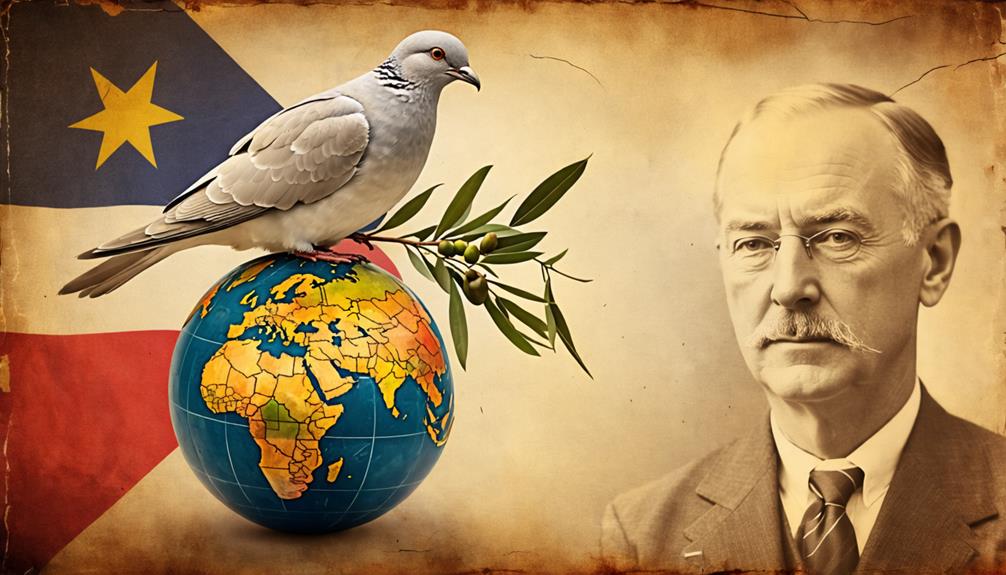
If Wilson's Fourteen Points had been fully implemented, it may have led to a more stable and peaceful Europe following World War I. One theory is that the rise of Hitler and Nazi Germany could have been averted by promoting a just peace and international cooperation, rather than imposing harsh terms on Germany in the Treaty of Versailles.
However, it's also possible that even with a more lenient treaty, Germany may have still faced significant challenges and resentment due to its defeat in the war. The economic and political instability of the interwar period could have still created conditions for the rise of extremist ideologies and leaders.
While Wilson's vision wasn't fully realized after World War I, some of his ideas, such as the creation of an international organization to maintain peace, were later implemented through the formation of the United Nations following World War II.
Ideological Shifts
If the Fourteen Points had been fully embraced, it could have led to a significant shift in international relations. One theory is that the world would have seen a move towards more democratic and cooperative interactions between countries, with the old systems of secret alliances and colonial imperialism being replaced by open diplomacy and respect for national self-determination.
While Woodrow Wilson proposed the Fourteen Points in 1918, similar ideas were later pursued by others, such as Franklin D. Roosevelt's Atlantic Charter in 1941.
It's possible that if Wilson's vision had been realized earlier, it might've altered the course of events like World War II and the Cold War, but the extent of these changes is open to debate.
Technological Advancements
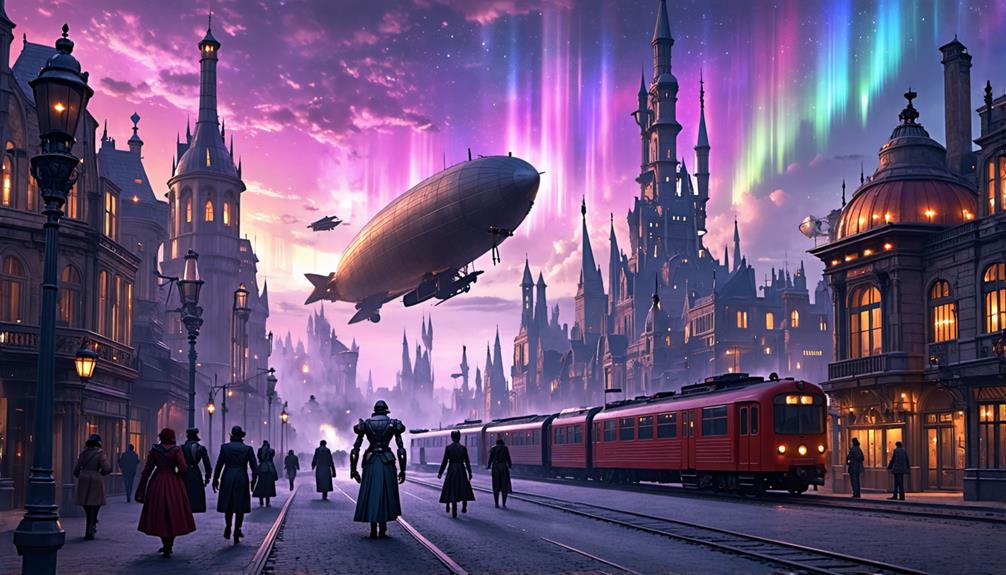
Had accelerated technological advancements coincided with Wilson's Fourteen Points, the world could have experienced a significantly different outcome. Rapid improvements in transportation and communication might've facilitated a quicker spread of Wilson's ideas, potentially garnering more global support for his vision.
However, the development of advanced weaponry could have also led to more devastating conflicts, making the implementation of Wilson's plan more challenging.
Some historians theorize that if Wilson's Fourteen Points had been proposed during a later era of technological advancement, they may have been more successful. Others suggest that regardless of the time period, the fundamental challenges of reshaping international relations would have remained largely the same.
While Wilson's vision wasn't fully realized in his lifetime, aspects of his plan, such as the League of Nations, were later incorporated into the United Nations, which was established after World War II during a period of more advanced technology.
Diplomatic Relations Transformed
In an alternate timeline, Woodrow Wilson's Fourteen Points could have been ignored by the international community, leading to a continuation of secret treaties and alliances. One theory is that this would have perpetuated the conditions that led to World War I, potentially setting the stage for future global conflicts.
It's possible that without the League of Nations, there would have been no framework for international cooperation and dispute resolution. This could have meant more frequent and devastating wars throughout the 20th century.
Interestingly, a similar set of principles was proposed by Soviet leader Vladimir Lenin in 1917, known as the Decree on Peace. Had Lenin's ideas gained traction instead of Wilson's, the diplomatic landscape of the early 20th century might've taken a very different shape.
Social Movements Influenced
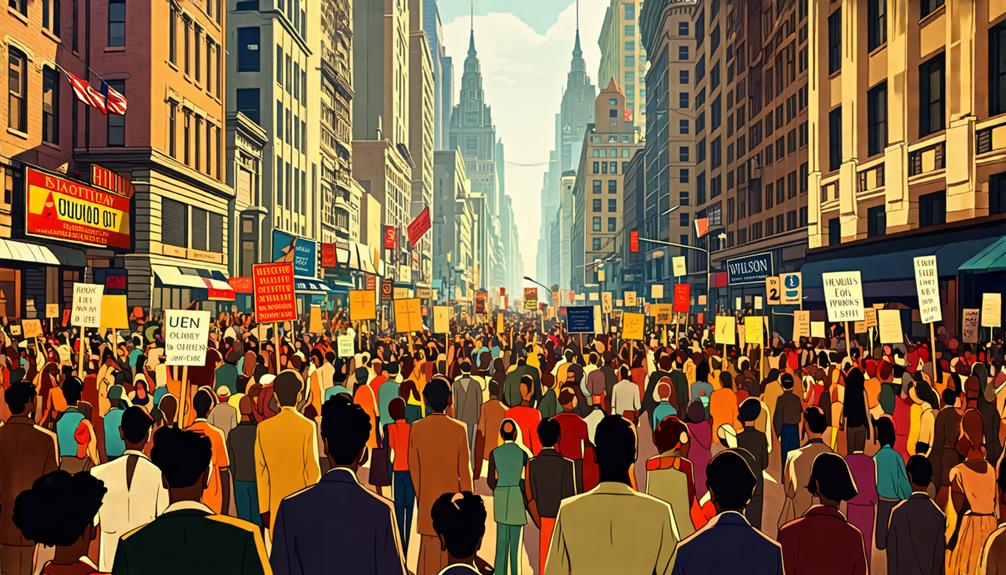
If Woodrow Wilson's Fourteen Points had profoundly influenced various social movements and political ideologies in the early 20th century, it could have led to significant changes in world history.
One theory is that the growth of internationalism and the League of Nations might've prevented or reduced the impact of World War II, as nations would have been more committed to collective security and peaceful conflict resolution.
The spread of self-determination and decolonization movements could have meant a faster end to colonial empires and the emergence of independent nations in Africa, Asia, and the Middle East. This might've altered the balance of power and created new challenges and opportunities for global diplomacy and trade.
While Wilson's vision wasn't fully realized in his lifetime, some elements of his Fourteen Points were later incorporated into the United Nations Charter and other international agreements after World War II.
It's possible that if his ideas had gained more traction earlier, the world could have seen a different trajectory in terms of international cooperation and conflict resolution.
Alternate Historical Timelines
In an alternate timeline where the international community fully embraced Woodrow Wilson's Fourteen Points in the early 20th century, the world would have taken a significantly different path. One theory suggests that this could have led to a more stable and peaceful world, with nations respecting self-determination and engaging in open diplomacy.
However, it's also possible that without the lessons learned from the failures of the League of Nations, the world may have been unprepared for the challenges that lay ahead.
While Wilson's vision wasn't realized in his lifetime, some of his ideas were later incorporated into the United Nations, which was established after World War II. It's fascinating to consider how history might've unfolded differently had Wilson's principles been adopted earlier.
Would the League of Nations have had the power to prevent future conflicts, or would unforeseen challenges have arisen?
Conclusion
You're left wondering how different the 20th century could've been if Wilson's vision had prevailed.
Self-determination, economic cooperation, and a strong League of Nations might've reshaped the global order.
Colonial reforms and diplomacy could've averted totalitarianism's rise and the horrors of another world war.
It's an enthralling alternate timeline to ponder, one where nations Snapchat their grievances instead of fighting.
In the end, you're grateful for Wilson's idealism, even if unrealized.

Leave a Reply